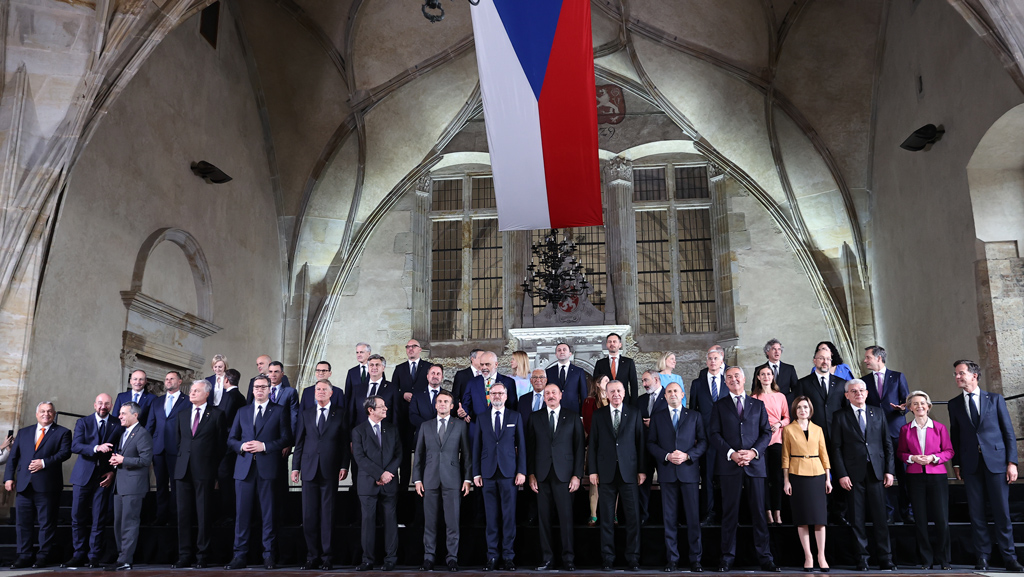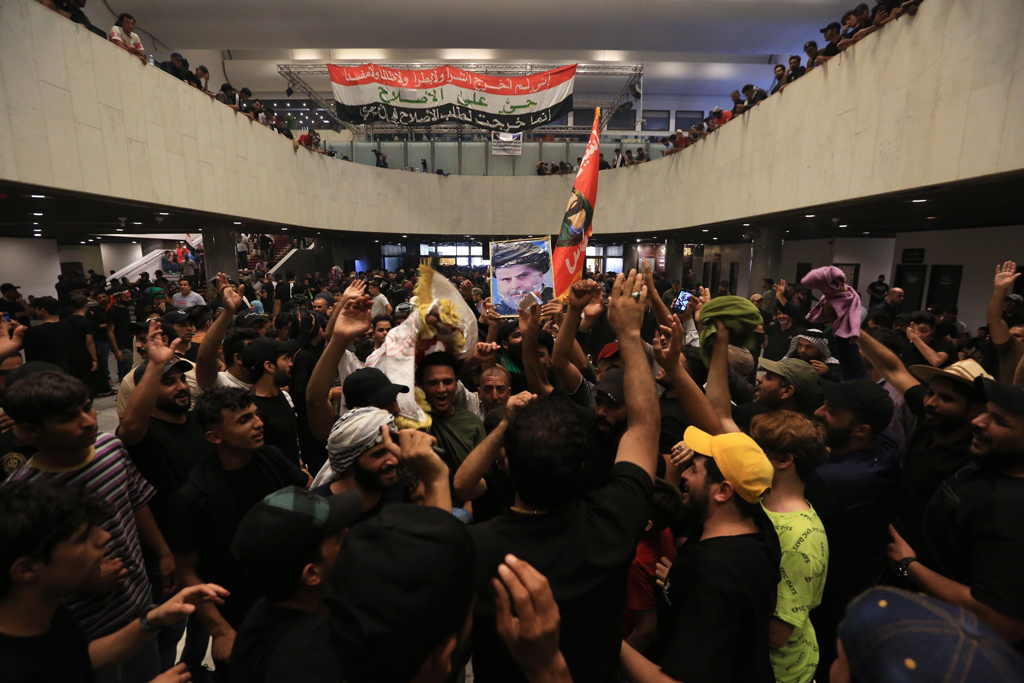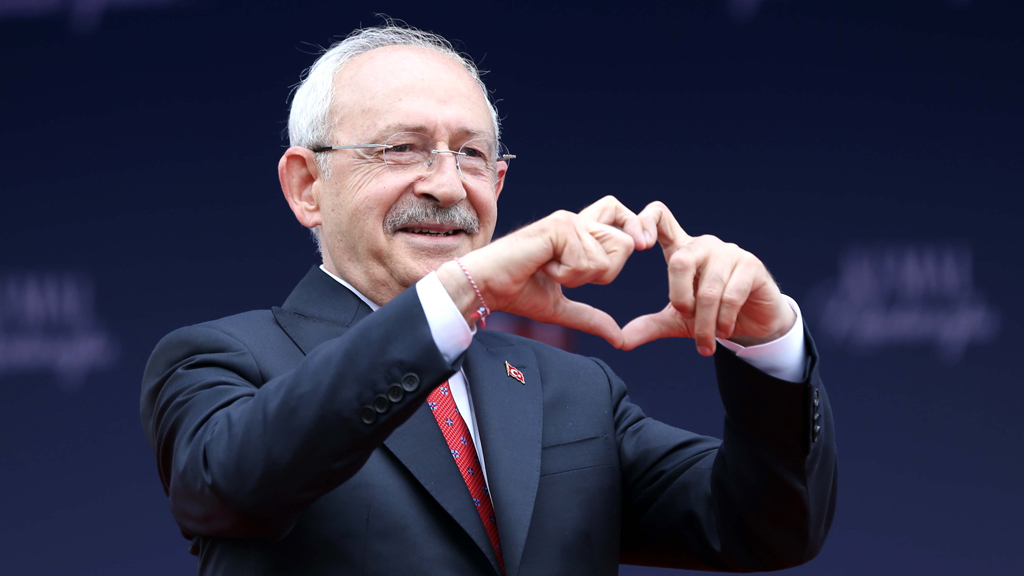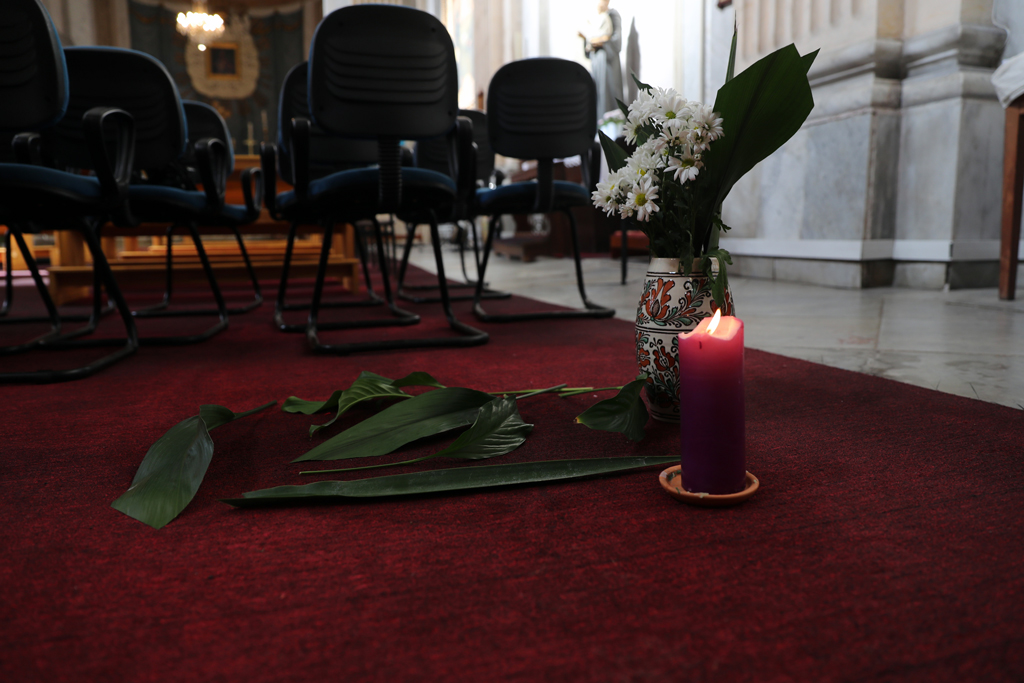Southern Türkiye was jolted by twin earthquakes on February 6 that caused unprecedented devastation across an extremely vast area, impacting 11 provinces. Almost on par with the scale of the devastation, Türkiye has also received a huge amount of humanitarian aid from many countries with which Türkiye both has cordial and strained relations. In light of the considerable level of solidarity showcased by many countries, it is still unclear whether this atmosphere of solidarity and amicability will translate into tangible outcomes in the respective bilateral relations between Türkiye and these nations. Likewise, it is also unclear whether the solidarity displayed by countries with which Türkiye had tense relations until the earthquakes will cause a thaw in bilateral ties and lead to a new chapter in relations. We asked foreign policy experts to weigh in on these questions.
Prepared by Bilgehan Öztürk Experts Murat Aslan Can Acun Kutluhan Görücü Ferhat Pirinççi Mehmet Uğur Ekinci Tunç Demirtaş Sibel Düz
 Murat Aslan Hasan Kalyoncu University States design foreign policies to protect or realize their interests. Nevertheless, they often mute their interests to address the aftermath of natural disasters and humanitarian concerns. These events require a collective response from states since forces of nature can neither be stopped nor can the consequences of the disasters be ignored. In this sense, even competing and hostile states sometimes forget their contradictory agendas and rush to disaster zones for humanitarian purposes, stripped of politics. The February 6 destructive earthquakes, respectively measuring 7.7 and 7.6 on the Ritcher scale, were not exceptions to this approach. In parallel with the previous pledges of Türkiye to other nations, governments displayed solidarity and resilience to eradicate the devastation of the destruction. Inherently foreign policies of states prioritize humanitarian support during natural disasters rather than quarreling about national agendas, specifically in the case of the earthquake in Türkiye. It is clear that Türkiye will further strengthen its “humanitarian” foreign policy, as mentioned in the manifesto of the Turkish Ministry of Foreign Affairs, with a harmonious stance. In this sense and within reciprocity, Türkiye will be in debt to the ones helping to shoulder the burden of the February 6 earthquakes. Türkiye and other states with competing interests experienced a psychological turning point after the disaster. A significant step was seen in the opening of communication channels based on empathy. This political environment may promote the desire to overcome incompatibilities, compromise on the least terms of a probable status quo, and freeze or delay tense issues in question. Within this cooperative atmosphere, political tensions may be managed by diplomatic means, pushing the military options to the backburner. In the realm of post-earthquake reality, Syria and the Caucasus will be on the agenda for a perpetual compromise. Contrary to the political and military crises in this part of the globe, all societies must prepare themselves for natural disasters, like pandemics, wildfires, earthquakes, or floods. At the end of the day, both Türkiye and the other countries, sharing this earth, will be exposed to many natural disasters. Hence, all states are obliged to design a livable and habitable world. They can do this by jointly contributing to the survivability of all species against the destructive power of nature, rather than losing time immersed in political issues. Back to top
Murat Aslan Hasan Kalyoncu University States design foreign policies to protect or realize their interests. Nevertheless, they often mute their interests to address the aftermath of natural disasters and humanitarian concerns. These events require a collective response from states since forces of nature can neither be stopped nor can the consequences of the disasters be ignored. In this sense, even competing and hostile states sometimes forget their contradictory agendas and rush to disaster zones for humanitarian purposes, stripped of politics. The February 6 destructive earthquakes, respectively measuring 7.7 and 7.6 on the Ritcher scale, were not exceptions to this approach. In parallel with the previous pledges of Türkiye to other nations, governments displayed solidarity and resilience to eradicate the devastation of the destruction. Inherently foreign policies of states prioritize humanitarian support during natural disasters rather than quarreling about national agendas, specifically in the case of the earthquake in Türkiye. It is clear that Türkiye will further strengthen its “humanitarian” foreign policy, as mentioned in the manifesto of the Turkish Ministry of Foreign Affairs, with a harmonious stance. In this sense and within reciprocity, Türkiye will be in debt to the ones helping to shoulder the burden of the February 6 earthquakes. Türkiye and other states with competing interests experienced a psychological turning point after the disaster. A significant step was seen in the opening of communication channels based on empathy. This political environment may promote the desire to overcome incompatibilities, compromise on the least terms of a probable status quo, and freeze or delay tense issues in question. Within this cooperative atmosphere, political tensions may be managed by diplomatic means, pushing the military options to the backburner. In the realm of post-earthquake reality, Syria and the Caucasus will be on the agenda for a perpetual compromise. Contrary to the political and military crises in this part of the globe, all societies must prepare themselves for natural disasters, like pandemics, wildfires, earthquakes, or floods. At the end of the day, both Türkiye and the other countries, sharing this earth, will be exposed to many natural disasters. Hence, all states are obliged to design a livable and habitable world. They can do this by jointly contributing to the survivability of all species against the destructive power of nature, rather than losing time immersed in political issues. Back to top
 Can Acun SETA Foreign Policy Researcher Following the Kahramanmaraş earthquakes that took place on February 6, new questions have arisen about the dynamics that will shape Türkiye's foreign relations. Of course, Türkiye's confrontation with the worst disaster of the last century may have important effects on foreign relations, as well as effects on many areas, but a structural change should not be expected. After all, Türkiye is a country that always strives to help the whole world and ranks first in terms of international humanitarian aid according to GDP. The efforts of many countries to help Türkiye after the earthquake should be seen as a result of this policy. When we evaluate the process in the context of earthquake diplomacy, I believe that the earthquake disaster can accelerate the related efforts by creating a catalyst effect, especially in terms of ongoing regional normalization efforts. Ultimately, while governments intend to open new political chapters based on interests, they also prepare public opinion for relevant political steps. The earthquakes that hit Türkiye and the aid provided in the aftermath supported the process in question. However, it should be taken into account that there will be no structural change and that the current processes will accelerate. We can use the visit of Egyptian Foreign Minister Sameh Shoukry and his following statements as a good example of earthquake diplomacy. In terms of the ongoing but interrupted Türkiye-Egypt normalization process, there seems to be new momentum after the earthquake. Again, it is necessary to evaluate the helping hand of Israel, the UAE, and Saudi Arabia extended to Türkiye after the earthquakes in this context. But at the end of the day, the structural, real issues will still be decisive. Back to top
Can Acun SETA Foreign Policy Researcher Following the Kahramanmaraş earthquakes that took place on February 6, new questions have arisen about the dynamics that will shape Türkiye's foreign relations. Of course, Türkiye's confrontation with the worst disaster of the last century may have important effects on foreign relations, as well as effects on many areas, but a structural change should not be expected. After all, Türkiye is a country that always strives to help the whole world and ranks first in terms of international humanitarian aid according to GDP. The efforts of many countries to help Türkiye after the earthquake should be seen as a result of this policy. When we evaluate the process in the context of earthquake diplomacy, I believe that the earthquake disaster can accelerate the related efforts by creating a catalyst effect, especially in terms of ongoing regional normalization efforts. Ultimately, while governments intend to open new political chapters based on interests, they also prepare public opinion for relevant political steps. The earthquakes that hit Türkiye and the aid provided in the aftermath supported the process in question. However, it should be taken into account that there will be no structural change and that the current processes will accelerate. We can use the visit of Egyptian Foreign Minister Sameh Shoukry and his following statements as a good example of earthquake diplomacy. In terms of the ongoing but interrupted Türkiye-Egypt normalization process, there seems to be new momentum after the earthquake. Again, it is necessary to evaluate the helping hand of Israel, the UAE, and Saudi Arabia extended to Türkiye after the earthquakes in this context. But at the end of the day, the structural, real issues will still be decisive. Back to top
The earthquake brought to light the shortcomings of the UN and the international system in Syria. The situation has turned into an area of opportunity for the Syrian regime. Although the regime accessed international aid through the airports of Damascus, Aleppo, and Latakia, the areas controlled by the opposition remained completely helpless. Humanitarian aid was able to enter Idlib about two days after the earthquake. However, the fact that the aid did not include earthquake debris response vehicles and was routine humanitarian aid rendered these efforts meaningless. On the other hand, the PKK terrorist organization’s Syrian wing, the YPG, also sought to gain a political advantage from the aid. The Syrian Interim Government's position and the aid provided by local tribes to people living in opposition-controlled areas reached the region, albeit days later. However, there was no assistance for the priority search and rescue activities following the earthquake. It is important to note that the normalization process between Türkiye and the Syrian regime is a complex issue that involves not only the two countries but also various regional and global actors. The earthquake in Syria has not significantly altered the existing dynamics of the conflict or the positions of the key actors involved. The statement by the Russian deputy foreign minister regarding a four-way format with Iran's participation suggests that Russia is attempting to shape the post-earthquake process in a way that aligns with its interests. It remains to be seen how Türkiye and other regional actors will respond to this initiative and whether the Syrian opposition will be sidelined in the process. Back to top
 Ferhat Pirinççi
Ferhat Pirinççi Uludağ University The impact of the earthquakes on Turkish foreign policy can be assessed by analyzing the aid provided and the solidarity shown in response to the destruction caused by the tremors. Türkiye has been one of the most generous countries in the world in terms of official development aid for a long time. Before the earthquakes, Türkiye was one of the key actors in the Russia-Ukraine war. However, after the earthquakes, a process of "normalization" began, especially with Middle Eastern countries, and tensions in relations were postponed. A new chapter was opened, which led to increased communication channels. In a short period, there was an intense mobilization of humanitarian aid and search-and-rescue teams sent to Türkiye by the international community. Undoubtedly, Turkish foreign policy takes note of this aid and the marked solidarity shown by the international community. Some of these states are directly involved in the issues that are among the main agenda items of Turkish foreign policy. I do not believe that this aid will lead to a radical change in Türkiye's bilateral relations, but existing and potential tensions with some countries may be postponed in the short term, as seen in statements made with Greece. On the other hand, starting with the cooperation seen after the earthquakes, this process may accelerate the normalization and establishment of strong communication channels with some states. I don't think that Türkiye's policies toward the war between Russia and Ukraine and other crisis regions will be affected by the earthquakes and will continue as before February 6. Türkiye's external development aid and other humanitarian aid, aimed at overcoming the destruction resulting from other earthquakes or natural disasters and facilitating recovery, may decrease in the short term compared to the past. However, I believe that this issue will disappear in the medium term, and even a higher level of aid than the previous amount will be achieved in the long term.
Back to top
 Mehmet Uğur Ekinci
Mehmet Uğur Ekinci Turkish National Police Academy After the earthquake, Greece's demonstration of solidarity toward Türkiye as a government and society has brought détente to bilateral relations. Although there is still potential for tension due to the respective election atmospheres in both countries, the détente experienced after the earthquake has greatly reduced this risk. On the other hand, achieving long-term normalization in bilateral relations, as was seen after the 1999 earthquakes, seems difficult at the moment. The good atmosphere that started at that time was due to the existence of a common vision for the future between Türkiye and Greece. With the resolution of the Cyprus problem and Türkiye's accession to the EU, the borders between the two countries would be lifted, cooperation and interdependence would be strengthened, and conflicts would become insignificant. However, these optimistic expectations have not materialized, and changing regional and global dynamics have brought fundamental problems to the surface again. Although populist rhetoric and nationalist reflexes have played some role in the recent bilateral tensions, I believe that these are mainly due to geopolitical factors. The two countries are located in a region where different regional systems intersect, global actors compete with each other for their interests, and transborder risk factors are abundant. We can think of this as an active fault line running through the Aegean and the Eastern Mediterranean. While small tremors constantly occur on this fault line, there is the possibility of a major earthquake if relevant measures are not taken. Unlike geological fault lines, fault lines in international politics can be partially or completely neutralized by the actors involved. Bringing Türkiye, Greece, and Cyprus together under the umbrella of the EU was an idea that could have repaired the fault lines mentioned above, but it did not happen and is no longer realistic. However, it may still be possible to repair these fault lines if new visionary ideas for a common future can be developed and political leaders show a strong will to implement them. Today both sides should see the current positive atmosphere as an opportunity to jointly seek ways to mitigate the risks arising from their difficult shared geography. In the short term, they need to establish sustainable dialogue and strengthen confidence-building measures. In the medium term, they need to develop common projects and policies that would increase mutual interdependence.
Back to top
 Tunç Demirtaş
Tunç Demirtaş Mersin University It is a fact that the earthquake that occurred in Türkiye on February 6 has impacted international relations. United Nations Secretary-General Antonio Guterres described Türkiye's hosting of 3.6 million Syrian refugees for more than 10 years due to the crisis in Syria as an incredible act of generosity. In this context, he underlined that the same support and generosity shown by the Turkish people toward the Syrians hosted in Türkiye under temporary protection should be given to the Turkish people affected by the earthquake by the international community. Due to the earthquake, humanitarian aid was sent to Türkiye by many countries. However, in comparison to their economic development levels, the support provided by many African countries to Türkiye after the earthquake is remarkable. It is an undeniable fact that Türkiye, which has held the title of "the most generous country" since 2015 and often provides emergency/humanitarian aid to African countries, has been rewarded for its support. Türkiye, which has been carrying out various humanitarian aid activities for the African continent for many years, started to receive aid from African countries after the earthquake. Therefore, questions such as "What are we doing in Africa?" and "Why is the aid always one-sided?" were answered through the support given by African countries after the "disaster of the century." The aid and support from Africa are also an example of being a friend in need and having loyalty, as many African countries, including Somalia, Sudan, Djibouti, South Africa, Senegal, Sierra Leone, Nigeria, Ethiopia, Algeria, Libya, Mali, Chad, Kenya, Ivory Coast, Egypt, Tunisia, Burundi, and Zambia provided Türkiye with aid in kind and cash for food and shelter. They also sent search-and-rescue teams. Likewise, citizens of African countries who were in Türkiye for various reasons, such as education and work, went to disaster areas to fulfill their duty of loyalty to the country by helping NGOs and foreign teams. In addition, people from many African countries supported Türkiye with their prayers. In short, the support of African countries in the face of the "disaster of the century" in Türkiye has strengthened Türkiye-Africa relations and further consolidated ties between them.
What role did the Turkish defense industry play during and after the earthquakes? As a relatively new but also a crucial component of Turkish foreign policy, Turkish indigenous defense industry products have also been functional in Türkiye’s efforts to cope with the aftermath of the twin earthquakes. We asked SETA Foreign Policy Researcher Sibel Düz what role these indigenous defense products play in the aftermath of the earthquakes in southern Türkiye.
Back to top
 Sibel Düz
Sibel Düz SETA Foreign Policy Researcher We have witnessed how important the development of defense technology and engineering is for our country. For example, UAVs were activated for faster and more detailed detection of the widespread damage after the earthquake. On the first day of the earthquake, due to the inability of helicopters and planes to take off in unsuitable weather conditions, AKINCI TİHAs and TB2 SİHAs – serving in the inventories of the Land Forces Command, the Naval Forces Command, the Air Force Command, the Gendarmerie General Command, the General Directorate of Security and Baykar – started to were dispatched to take images of the disaster areas. As of February 9, three TB2 SİHAs for damage assessment activities had started to create high-resolution maps of disaster areas thanks to the Baykar Rapid Mapping Pod. Meanwhile, AKINCI and TB2 supported search and rescue and damage assessment efforts while also providing reports about the meteorological conditions. Recently, Baykar announced that nine Bayraktar AKINCIs and 41 Bayraktar TB2s, eight of which are integrated with Baykar Rapid Mapping Pods, have performed a total of 2,296 hours and 37 minutes of mission flights. Moreover, with the civilian base station integrated into AKSUNGUR, the first twin-engine UAV in our country manufactured by the Turkish Aerospace Industries (TAI), AKSUNGUR has served as a base station in case of disasters as well as conducted intelligence, surveillance, and reconnaissance activities. Thus, approximately 50 hours of uninterrupted mobile voice and data communication could be provided in an area of 50 square kilometers in the disaster zone. The aforementioned base station system is thought to be the UYGAR 4G/LTE communication pod developed by ULAK Communications Corporation. AKSUNGUR was used for the first time in a natural disaster by flying for 60 hours for surveillance in recent forest fires in Türkiye. In addition, Fly BVLOS was actively involved in search and rescue efforts with its new model JACKAL-M UAV, which carried the SANCAK UAV and medical supplies to the earthquake zone. Fly BVLOS continued its efforts with five UAV-2 (15-kg payload) and six UAV-1 class UAVs in the disaster area. UAVs that took off after the earthquake carried urgently needed life support packages and analyzed real-time images in inaccessible areas and provided them to the authorities. Additionally, Baha and Poyraz, the UAVs developed by HAVELSAN, also took part in reconnaissance-surveillance activities. Since it does not need a runway due to its vertical landing and take-off capabilities and its ability to fly under clouds, Baha can be used when it is difficult to take images with UAVs due to adverse weather conditions. It contributed to obtaining the first information about the inaccessible areas. Barkan, the unmanned ground vehicle developed by HAVELSAN, was also sent to the region with a cargo transport basket to support the tasks of transporting the wounded or material in the region in case of need. Finally, the Behind-the-Wall Radar (DAR) device produced by STM Defense Technologies Engineering and Trade Inc. was used outside the defense industry for the first time in Hatay. The device helped detect survivors stuck under the debris and shared their location with the search and rescue teams. Its capabilities contributed to saving many lives.
Back to top
 Murat Aslan Hasan Kalyoncu University States design foreign policies to protect or realize their interests. Nevertheless, they often mute their interests to address the aftermath of natural disasters and humanitarian concerns. These events require a collective response from states since forces of nature can neither be stopped nor can the consequences of the disasters be ignored. In this sense, even competing and hostile states sometimes forget their contradictory agendas and rush to disaster zones for humanitarian purposes, stripped of politics. The February 6 destructive earthquakes, respectively measuring 7.7 and 7.6 on the Ritcher scale, were not exceptions to this approach. In parallel with the previous pledges of Türkiye to other nations, governments displayed solidarity and resilience to eradicate the devastation of the destruction. Inherently foreign policies of states prioritize humanitarian support during natural disasters rather than quarreling about national agendas, specifically in the case of the earthquake in Türkiye. It is clear that Türkiye will further strengthen its “humanitarian” foreign policy, as mentioned in the manifesto of the Turkish Ministry of Foreign Affairs, with a harmonious stance. In this sense and within reciprocity, Türkiye will be in debt to the ones helping to shoulder the burden of the February 6 earthquakes. Türkiye and other states with competing interests experienced a psychological turning point after the disaster. A significant step was seen in the opening of communication channels based on empathy. This political environment may promote the desire to overcome incompatibilities, compromise on the least terms of a probable status quo, and freeze or delay tense issues in question. Within this cooperative atmosphere, political tensions may be managed by diplomatic means, pushing the military options to the backburner. In the realm of post-earthquake reality, Syria and the Caucasus will be on the agenda for a perpetual compromise. Contrary to the political and military crises in this part of the globe, all societies must prepare themselves for natural disasters, like pandemics, wildfires, earthquakes, or floods. At the end of the day, both Türkiye and the other countries, sharing this earth, will be exposed to many natural disasters. Hence, all states are obliged to design a livable and habitable world. They can do this by jointly contributing to the survivability of all species against the destructive power of nature, rather than losing time immersed in political issues. Back to top
Murat Aslan Hasan Kalyoncu University States design foreign policies to protect or realize their interests. Nevertheless, they often mute their interests to address the aftermath of natural disasters and humanitarian concerns. These events require a collective response from states since forces of nature can neither be stopped nor can the consequences of the disasters be ignored. In this sense, even competing and hostile states sometimes forget their contradictory agendas and rush to disaster zones for humanitarian purposes, stripped of politics. The February 6 destructive earthquakes, respectively measuring 7.7 and 7.6 on the Ritcher scale, were not exceptions to this approach. In parallel with the previous pledges of Türkiye to other nations, governments displayed solidarity and resilience to eradicate the devastation of the destruction. Inherently foreign policies of states prioritize humanitarian support during natural disasters rather than quarreling about national agendas, specifically in the case of the earthquake in Türkiye. It is clear that Türkiye will further strengthen its “humanitarian” foreign policy, as mentioned in the manifesto of the Turkish Ministry of Foreign Affairs, with a harmonious stance. In this sense and within reciprocity, Türkiye will be in debt to the ones helping to shoulder the burden of the February 6 earthquakes. Türkiye and other states with competing interests experienced a psychological turning point after the disaster. A significant step was seen in the opening of communication channels based on empathy. This political environment may promote the desire to overcome incompatibilities, compromise on the least terms of a probable status quo, and freeze or delay tense issues in question. Within this cooperative atmosphere, political tensions may be managed by diplomatic means, pushing the military options to the backburner. In the realm of post-earthquake reality, Syria and the Caucasus will be on the agenda for a perpetual compromise. Contrary to the political and military crises in this part of the globe, all societies must prepare themselves for natural disasters, like pandemics, wildfires, earthquakes, or floods. At the end of the day, both Türkiye and the other countries, sharing this earth, will be exposed to many natural disasters. Hence, all states are obliged to design a livable and habitable world. They can do this by jointly contributing to the survivability of all species against the destructive power of nature, rather than losing time immersed in political issues. Back to top Can Acun SETA Foreign Policy Researcher Following the Kahramanmaraş earthquakes that took place on February 6, new questions have arisen about the dynamics that will shape Türkiye's foreign relations. Of course, Türkiye's confrontation with the worst disaster of the last century may have important effects on foreign relations, as well as effects on many areas, but a structural change should not be expected. After all, Türkiye is a country that always strives to help the whole world and ranks first in terms of international humanitarian aid according to GDP. The efforts of many countries to help Türkiye after the earthquake should be seen as a result of this policy. When we evaluate the process in the context of earthquake diplomacy, I believe that the earthquake disaster can accelerate the related efforts by creating a catalyst effect, especially in terms of ongoing regional normalization efforts. Ultimately, while governments intend to open new political chapters based on interests, they also prepare public opinion for relevant political steps. The earthquakes that hit Türkiye and the aid provided in the aftermath supported the process in question. However, it should be taken into account that there will be no structural change and that the current processes will accelerate. We can use the visit of Egyptian Foreign Minister Sameh Shoukry and his following statements as a good example of earthquake diplomacy. In terms of the ongoing but interrupted Türkiye-Egypt normalization process, there seems to be new momentum after the earthquake. Again, it is necessary to evaluate the helping hand of Israel, the UAE, and Saudi Arabia extended to Türkiye after the earthquakes in this context. But at the end of the day, the structural, real issues will still be decisive. Back to top
Can Acun SETA Foreign Policy Researcher Following the Kahramanmaraş earthquakes that took place on February 6, new questions have arisen about the dynamics that will shape Türkiye's foreign relations. Of course, Türkiye's confrontation with the worst disaster of the last century may have important effects on foreign relations, as well as effects on many areas, but a structural change should not be expected. After all, Türkiye is a country that always strives to help the whole world and ranks first in terms of international humanitarian aid according to GDP. The efforts of many countries to help Türkiye after the earthquake should be seen as a result of this policy. When we evaluate the process in the context of earthquake diplomacy, I believe that the earthquake disaster can accelerate the related efforts by creating a catalyst effect, especially in terms of ongoing regional normalization efforts. Ultimately, while governments intend to open new political chapters based on interests, they also prepare public opinion for relevant political steps. The earthquakes that hit Türkiye and the aid provided in the aftermath supported the process in question. However, it should be taken into account that there will be no structural change and that the current processes will accelerate. We can use the visit of Egyptian Foreign Minister Sameh Shoukry and his following statements as a good example of earthquake diplomacy. In terms of the ongoing but interrupted Türkiye-Egypt normalization process, there seems to be new momentum after the earthquake. Again, it is necessary to evaluate the helping hand of Israel, the UAE, and Saudi Arabia extended to Türkiye after the earthquakes in this context. But at the end of the day, the structural, real issues will still be decisive. Back to top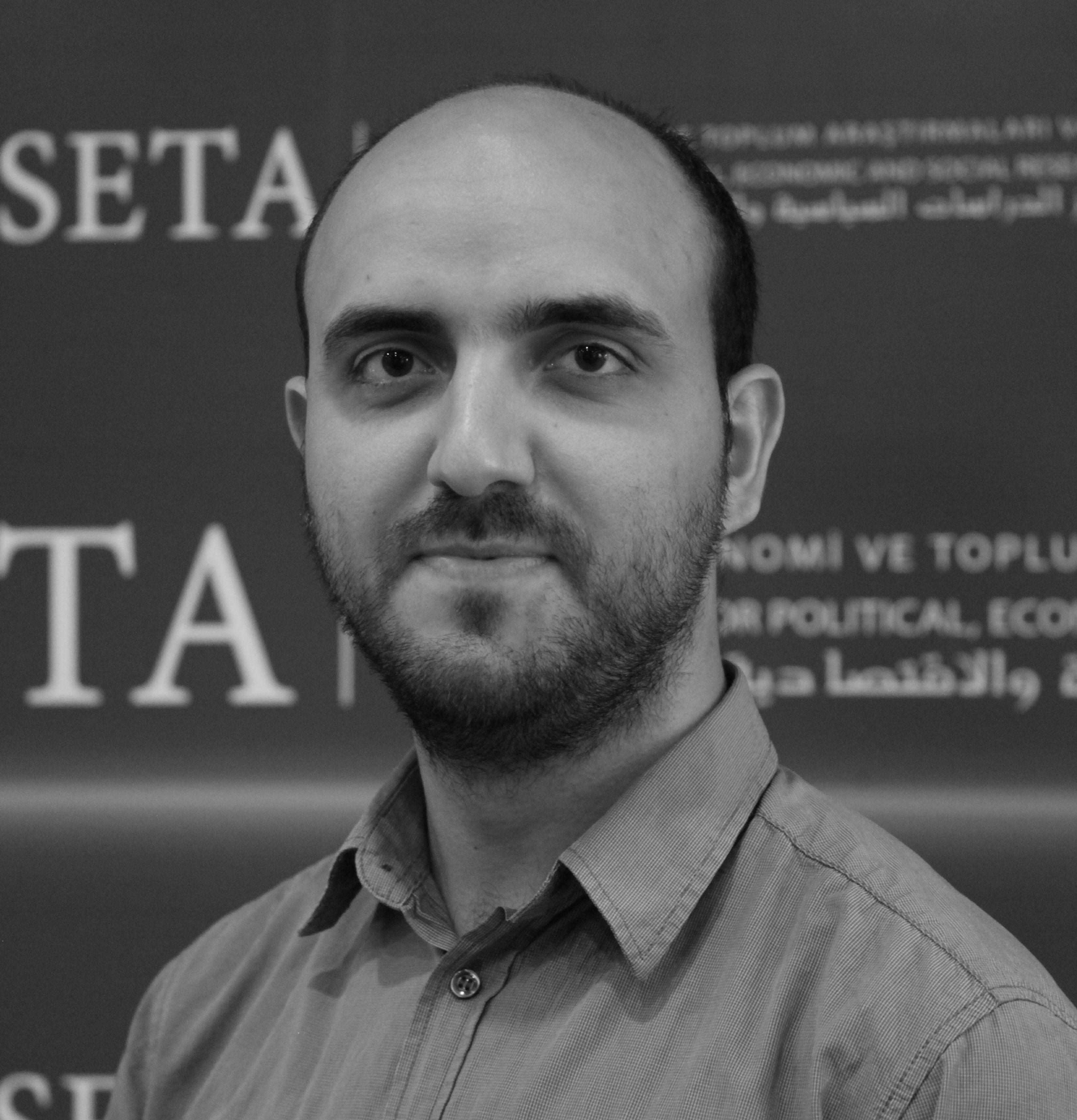


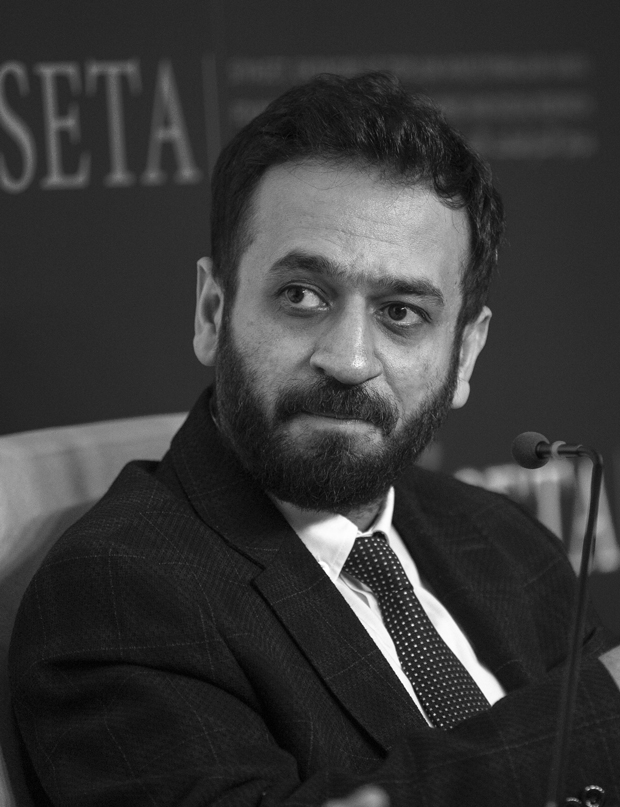
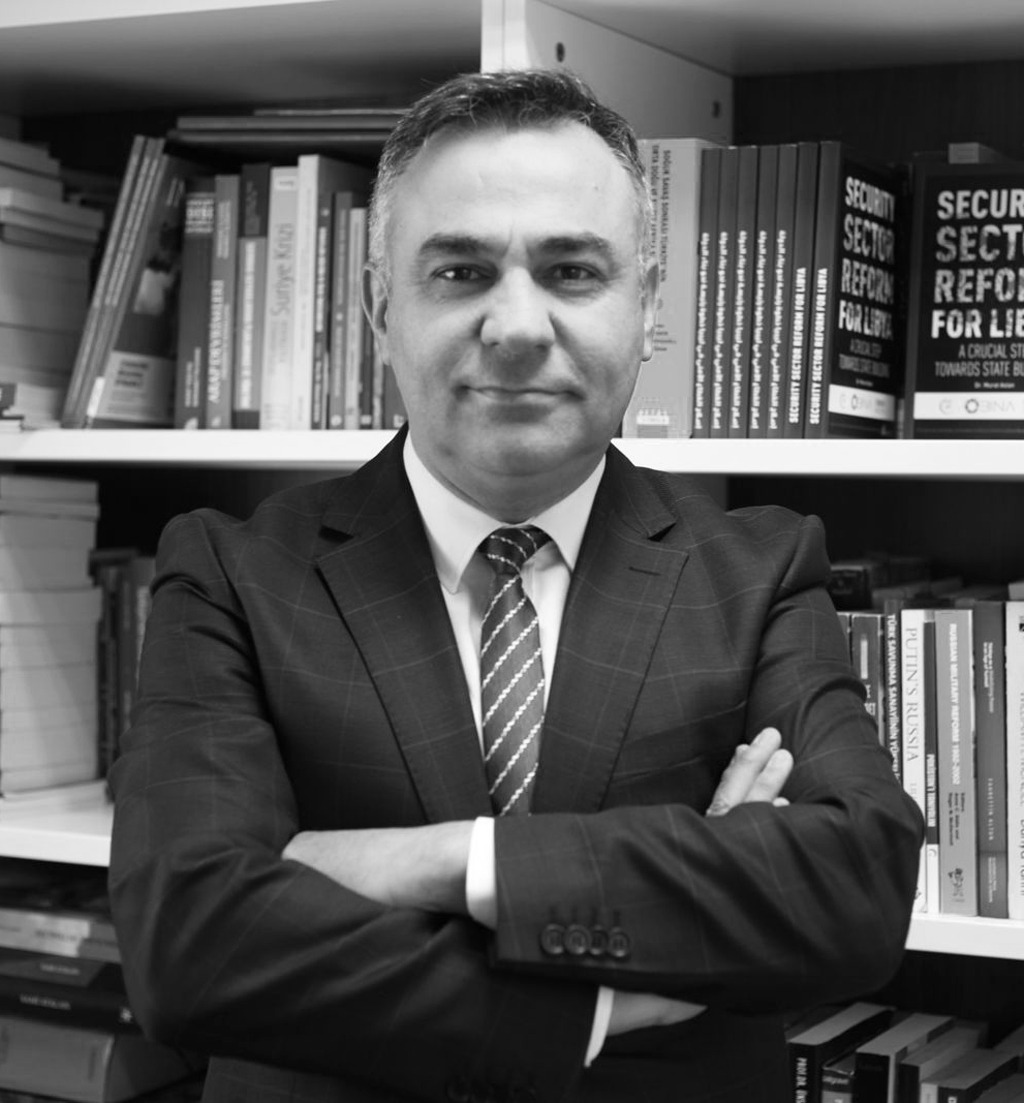
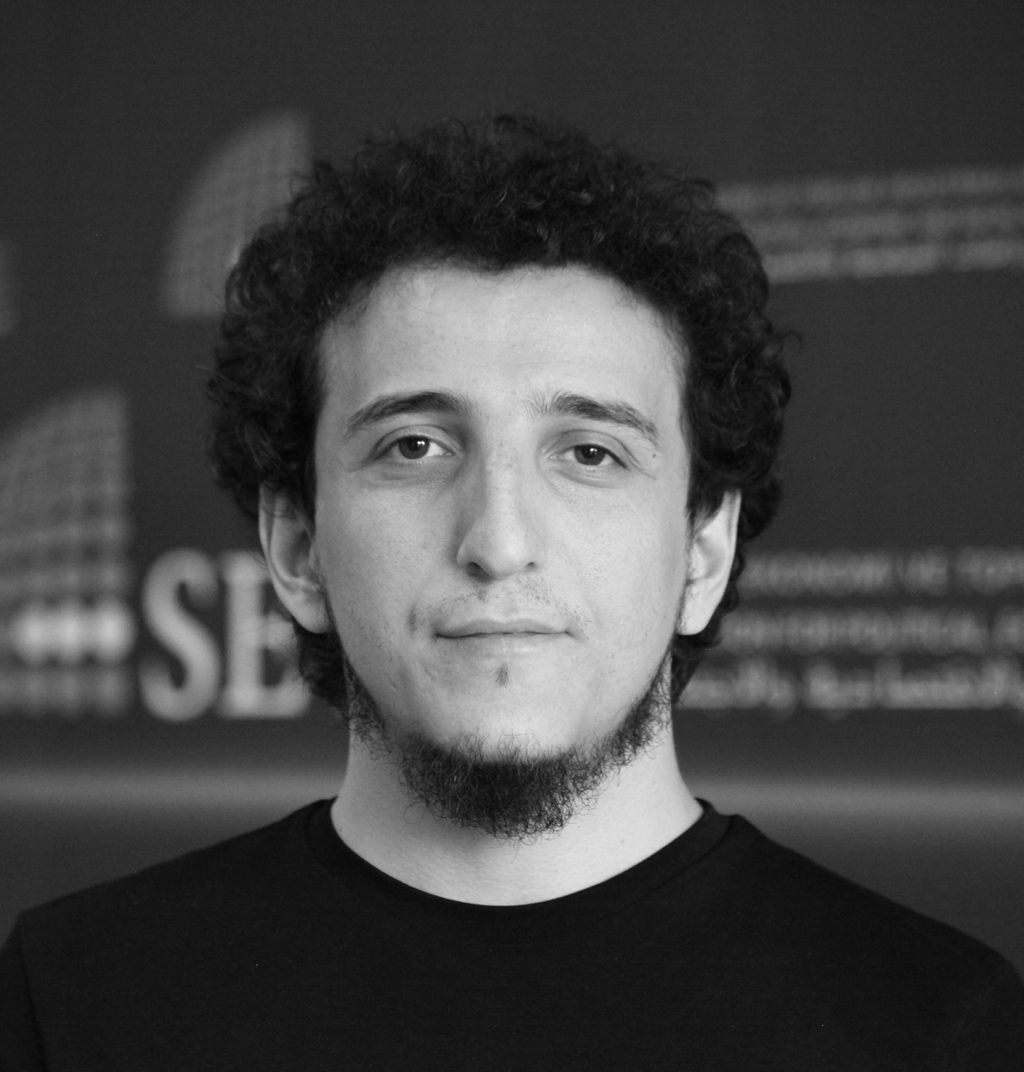
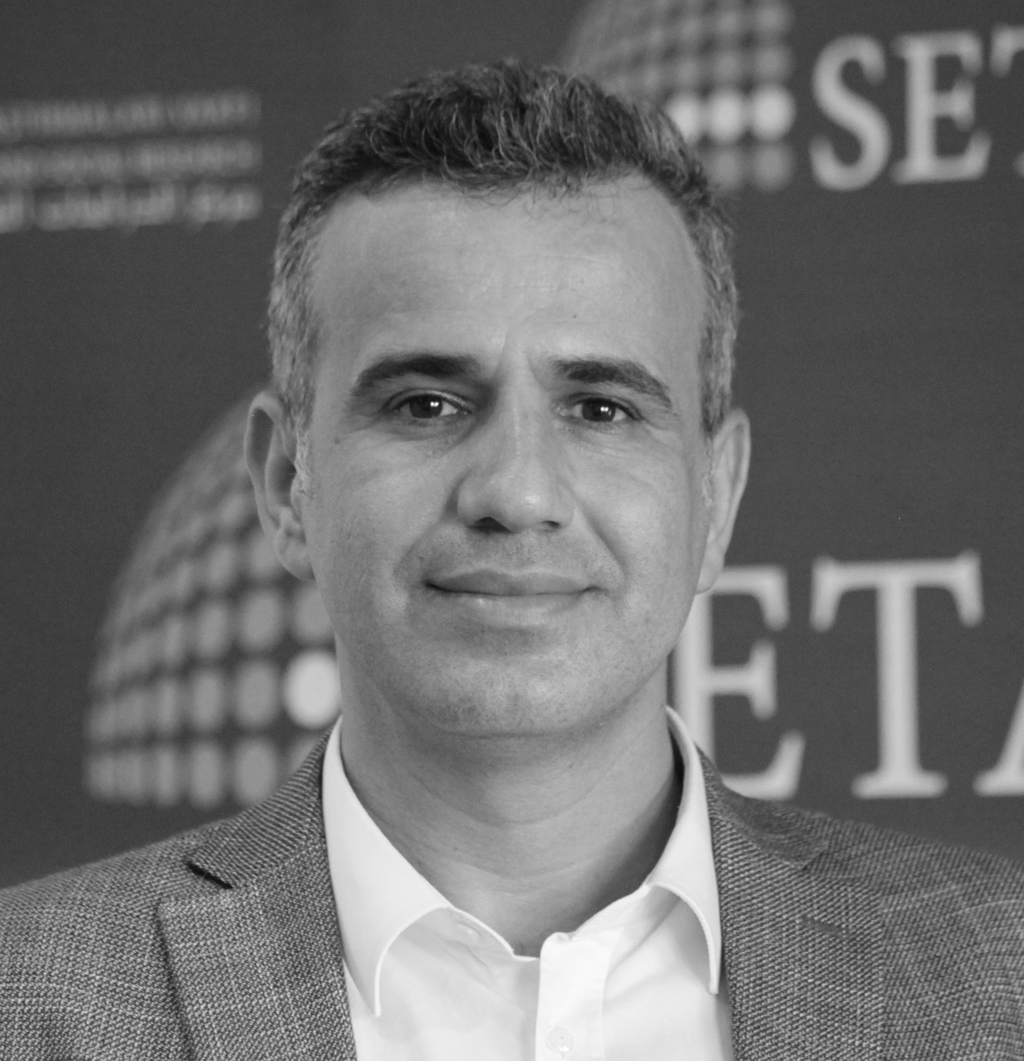

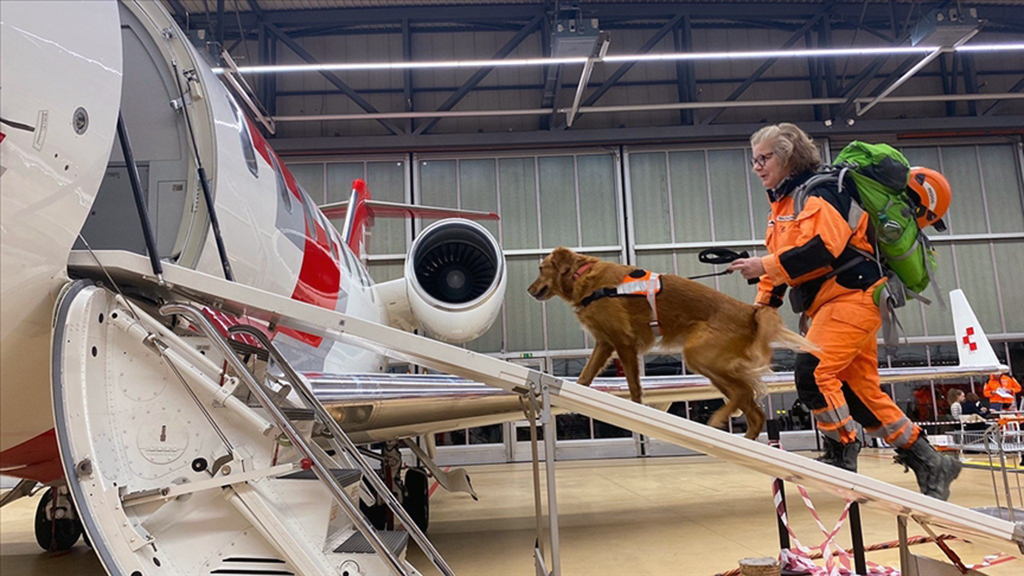
 Kutluhan Görücü
Kutluhan Görücü



